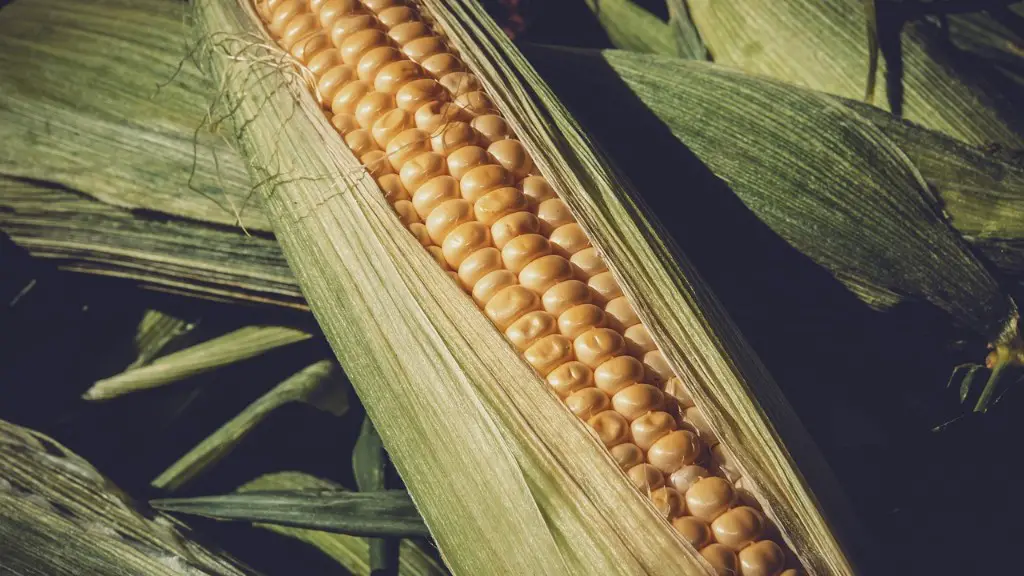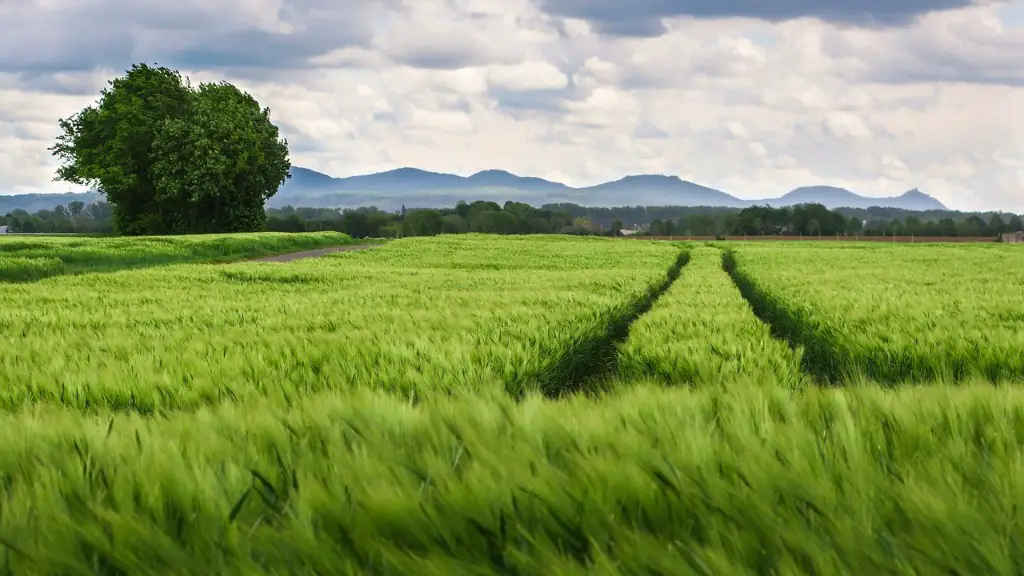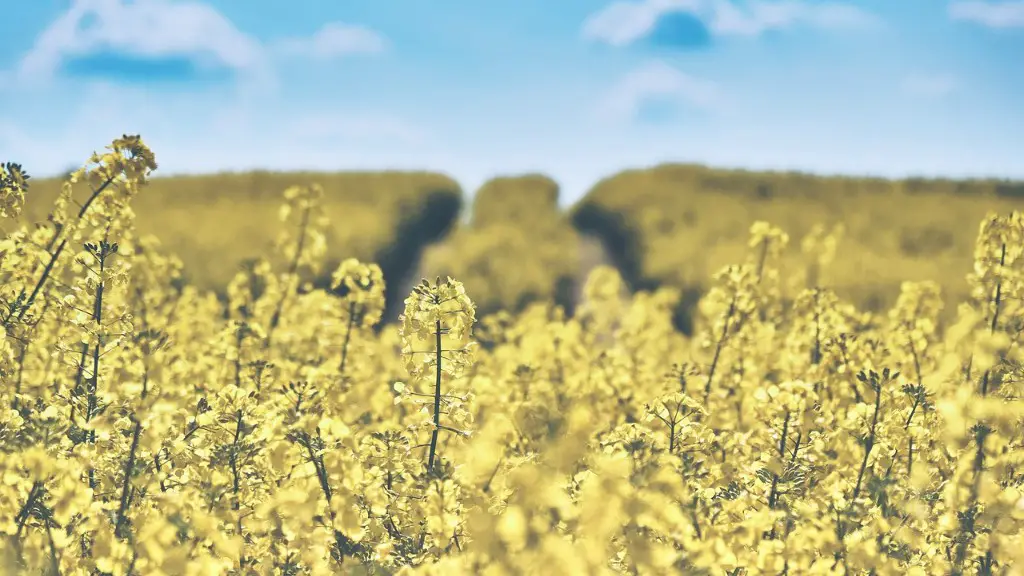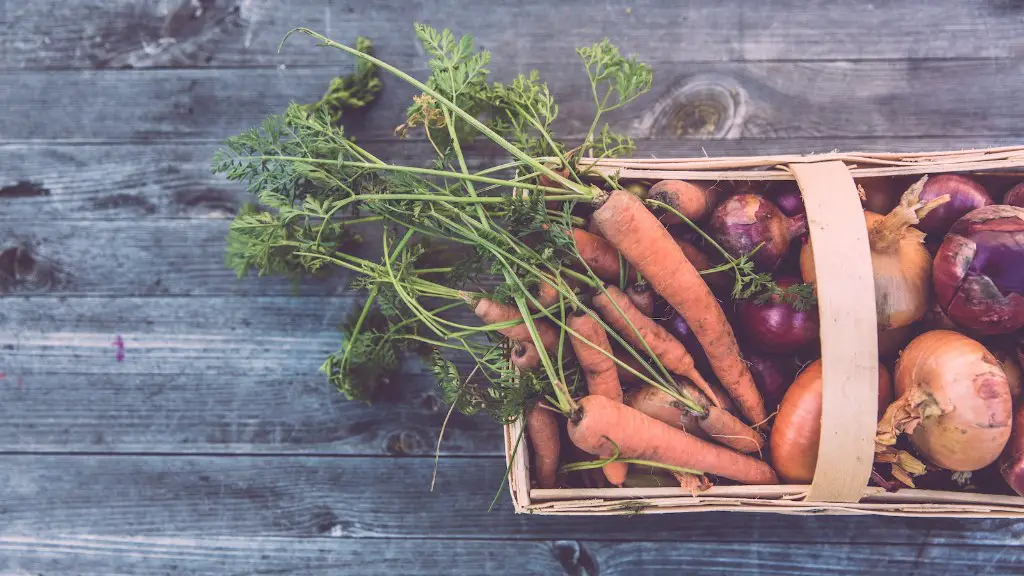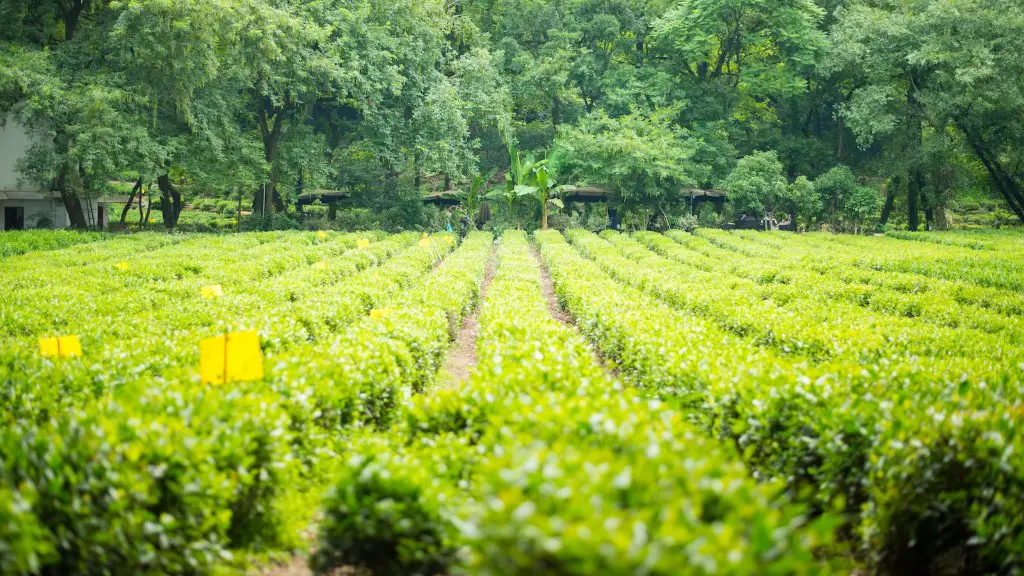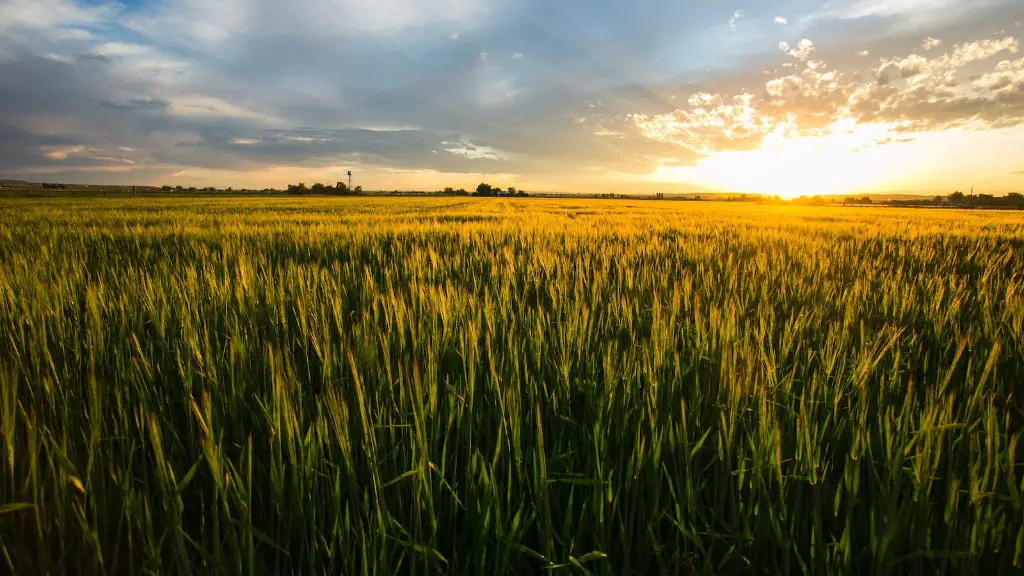The answer to this question is yes – Singapore does indeed have agriculture. Throughout its history, Singapore has embraced various types of agricultural activities, including the cultivation of cash crops and livestock, as well as aquaculture and the raising of animals and poultry. Despite its small size, the country has been able to make good use of its relatively limited land resources to produce a variety of food crops, including dairying, horticulture and animal husbandry.
Singapore’s agricultural sector is highly developed and advanced and is highly modernized and mechanized, with various types of machines and technology used to ensure that farming activities are done efficiently and effectively. Furthermore, the country has also implemented several initiatives to promote and encourage agricultural production, such as providing support to farmers, helping them obtain access to markets and making land available for agricultural use.
Singapore’s agricultural industry is also well supported by government policies. The government has introduced various measures to ensure the efficient and continuous operation of agriculture in the country. These include schemes and incentives to encourage farmers to be more productive and efficient, such as grants and preferential land lease arrangements. In addition, the government also provides farmers with assistance through national and local subsidies, grants, training and education.
Singapore has been renowned for its highly productive and efficient agricultural sector. Despite its limited land area, the country is able to produce a significant amount of food for its population and for export. In fact, the country is one of the few countries in Asia to be able to produce a surplus of food. This surplus has enabled Singapore to become one of the world’s leading food exporters, with its exports being highly competitive in quality and price.
In conclusion, Singapore does indeed have agriculture. Despite its limited land resources, the country has managed to make good use of its land resources to produce a variety of food products. The country has also implemented various measures to promote and encourage agricultural activities. Moreover, Singapore’s agricultural sector is highly developed and advanced and its exports are highly competitive in terms of quality and price.
Types of Agriculture in Singapore
Singapore is home to a variety of agricultural activities, ranging from the cultivation of cash crops to the raising of animals and poultry. Dairying, horticulture, animal husbandry, aquaculture and fish farming are some of the most common types of agriculture practiced in the country. The cultivation of cash crops such as rubber, pineapple and papaya are also popular. Furthermore, the country also has a highly developed poultry industry, whereby poultry products such as eggs, meat, and processed poultry products are exported to other countries.
Singapore also has an active aquaculture industry. Fish and shellfish are cultivated in ponds, creeks and reservoirs, as well as in floating net cages. Aquaculture activities have contributed greatly to Singapore’s seafood production. The production of fish, crabs, prawns, oysters, and other seafood has increased greatly over the years, making Singapore one of the major fish exporters in the world.
Apart from the traditional types of agriculture, Singapore also has a highly developed urban agriculture sector. Urban agriculture typically refers to the cultivation of crop and animal products in built-up and urban environments. In Singapore, this includes the cultivation of vegetables and fruits, as well as livestock production. Urban farms, such as those operated by Singapore’s Urban Redevelopment Authority, can be found throughout the country.
In addition, Singapore also has a number of private and small-scale farms and home gardens. These are generally geared towards supplying the local market and do not typically export their produce. These backyard farms produce a variety of food items such as fruits, vegetables, eggs, and poultry.
Overall, a wide variety of agricultural activities can be found in Singapore, and the country is able to meet much of its population’s food needs. This is a testament to the country’s ability to efficiently utilize its land and water resources to maximize agricultural production.
Agricultural Regulations in Singapore
In order to ensure that its agricultural industry remains highly productive and efficient, Singapore has implemented a number of regulations. These regulations are aimed at providing farmers with a secure and stalwart environment for conducting their operations and bolstering the quality of agricultural products.
One of the most significant regulations adopted by the government is the Plant Protection Act. This Act was passed in 1974 and serves to protect plants from pests and diseases by providing farmers with effective and long-term control measures. The Act also provides for a range of regulations such as the registration of farms, registration of pest control measures, and strict regulations on the use of pesticides to ensure safety and minimize environmental risks.
In addition, the government has also been implementing various programmes and schemes to support and sustain the agricultural sector. These include schemes to facilitate access to markets, financial assistances in the form of grants, subsidies, and concessional loans, as well as training and technical assistance for farmers. The aim of these initiatives is to equip farmers with the knowledge and skills needed to maximize production and improve the quality of their produce.
Furthermore, the government has also implemented several measures for market and price stabilization. These measures aim to ensure fair prices for both producers and consumers as well as stable long-term prices for agricultural commodities. Through these measures, the government has sought to ensure that the agricultural sector remains economically viable, while also providing farmers with a secure and stable environment in which they can conduct their operations.
Overall, Singapore has a robust set of regulations in place to ensure the country’s agricultural industry can continue to serve the needs of its population. These regulations have enabled Singapore to become a leader in agricultural production in Asia and a major exporter of agricultural products.
Innovations in Singapore Agriculture
In recent years, Singapore has been a leader in the development of new and innovative technologies to improve its agricultural sector. One such innovation is the use of hydroponics, which is a method of growing plants without soil in nutrient-rich solutions. Hydroponic systems are used to produce a variety of food items such as leafy greens and mushrooms.
In addition, Singapore has also developed various techniques for the production of organic food. These techniques include the use of Integrated Pest Management and vermiculture, as well as soil management methods such as crop rotation and composting. Organic production systems in Singapore also seek to reduce the use of chemical pesticides and ensure that optimal soil nutrition can be maintained.
The country has also developed its own agricultural robots, which are designed to facilitate farmers in their daily operations. Using advanced robotics technology, these robots can be used to monitor crops, weed out pests, and even harvest crops. These robots are not only efficient but also cause minimal damage to the environment and reduce the need for human labor.
More recently, the government has also been actively investing in the research and development of artificial intelligence in the agricultural sector. AI-based technologies can be used to automate the production processes in farms, and can also be used to make decisions based on data collected from various sources, such as weather forecasts and soil conditions.
In conclusion, Singapore has been leading the way in the development of innovative solutions for its agricultural sector. Through the use of a variety of new technologies, the country is able to improve its food security and maximize its agricultural production.
Future of Singapore Agriculture
As Singapore continues to develop its agricultural sector, it is important to consider the future of this industry. With global demand for food increasing and population growth unabated, it is critical that agricultural production is kept at the forefront of Singapore’s plans for the future.
First and foremost, the government must ensure that there is an ample supply of land for agricultural production. This will require an expansion of the country’s available land resources, as well as the development of new land for agriculture. This means that the government should invest in land development projects such as irrigation systems, reforestation, and watershed management.
In addition, the government must also ensure that the country’s agricultural sector remains attractive to investors. This can be achieved through incentives for farmers and the development of agro-industrial hubs. Furthermore, the government must also work to ensure that farmers are adequately incentivized to adopt innovative technologies and techniques that can both increase their productivity and minimize environmental risks such as water pollution and soil degradation.
The government must also focus on encouraging farmers to adopt sustainable farming practices. This means investing in research and development, promoting organic agriculture and encouraging the proper use of fertilizers, pesticides and other chemical inputs. By ensuring that farming is done in an environmentally friendly manner, Singapore can help to protect its soil and water resources in the long-term.
Overall, Singapore must take all the necessary steps to ensure that its agricultural sector remains productive and efficient in the future while also ensuring that the country’s agricultural activities are conducted in an environmentally friendly manner. By doing this, Singapore can not only continue to serve its population but also meet the global demand for food.
